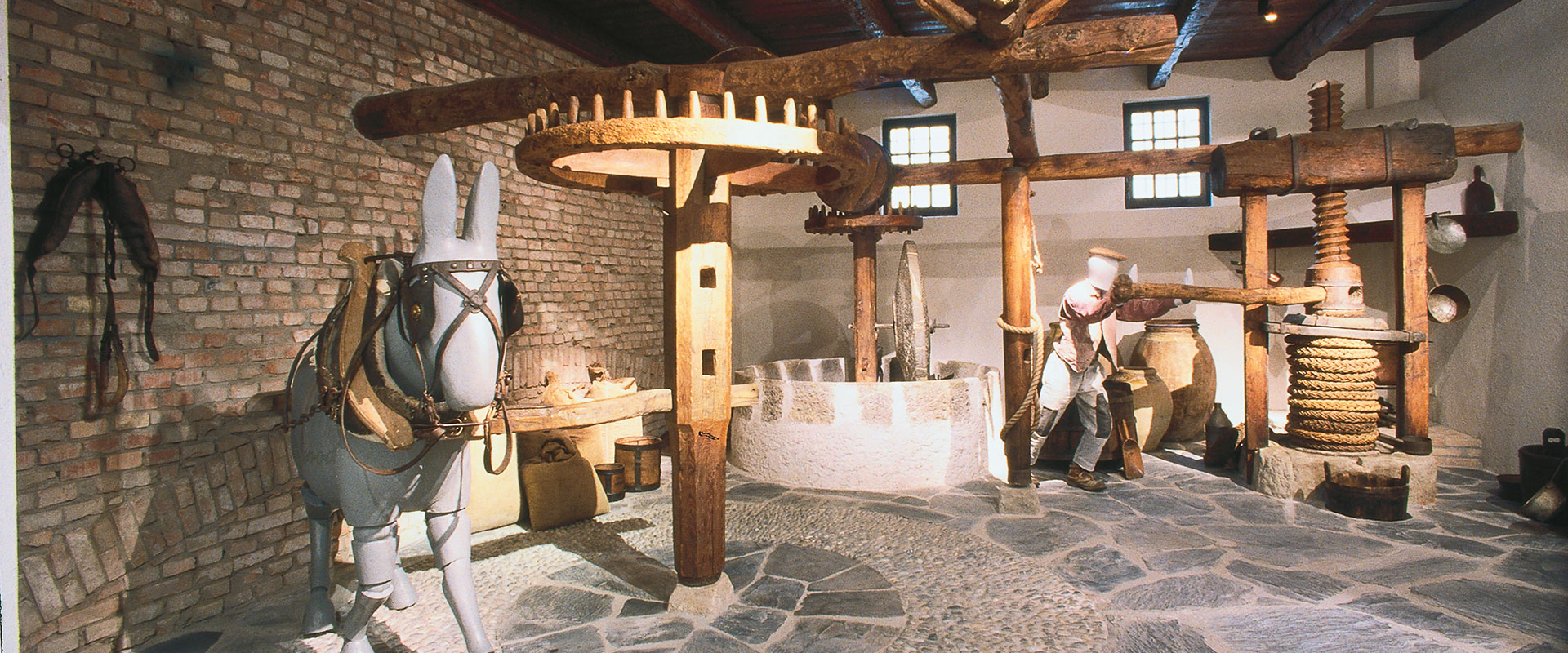Exploring The Heritage Of Southern Olive Oils

Table of Contents
Ancient Origins and Historical Significance of Southern Olive Oils
The cultivation of olives in the Southern Mediterranean has a history stretching back millennia. Archaeological evidence suggests olive cultivation began in the region as early as 6000 BC. The olive tree, a symbol of peace and prosperity, played a crucial role in the development of ancient civilizations.
- Early Uses: Beyond culinary applications, olive oil was widely used in ancient times for cosmetics, medicine, and even lighting. Its versatility made it an indispensable part of daily life.
- Religious and Cultural Significance: Olive oil held significant religious importance in many ancient cultures, featuring prominently in ceremonies and rituals. It also symbolized abundance and good fortune.
- Evolution of Production: Olive oil production techniques evolved slowly over centuries. Initially, simple methods like crushing olives with mortar and pestle were employed, later giving way to more sophisticated press systems during the Roman Empire and beyond. The Roman Empire, in particular, significantly expanded olive oil production and trade throughout the Mediterranean.
Geographic Variations and Unique Characteristics of Southern Olive Oils
The diverse terroirs and microclimates across Southern Europe dramatically influence the taste and quality of olive oils. Each region boasts unique characteristics, creating a wide spectrum of flavors and aromas.
- Andalusian Olive Oils (Spain): Andalusia, in Southern Spain, is renowned for its intense, fruity olive oils, often with notes of green apple and almond. Key varietals include Arbequina and Picual.
- Tuscan Olive Oils (Italy): Tuscany's olive oils are often described as medium-bodied, with a balanced profile of fruitiness, bitterness, and pungency. Frantoio and Leccino are prominent varieties.
- Sicilian Olive Oils (Italy): Sicily's volcanic soils contribute to the robust character of its olive oils. These oils often exhibit strong peppery notes and a distinct herbaceousness. Nocellara del Belice is a notable cultivar.
The impact of soil composition, altitude, and climate on olive oil characteristics is undeniable. Higher altitudes tend to produce oils with more pronounced aromas, while coastal regions often yield fruitier profiles.
Traditional Production Methods and Modern Innovations in Southern Olive Oil Making
The craftsmanship involved in traditional olive oil production is a testament to the generations of olive growers who have perfected the art. Traditional methods, while labor-intensive, often yield oils with exceptional flavor complexity.
- Traditional Pressing: The traditional method involved crushing olives using a mortar and pestle, followed by pressing to extract the oil. This process, while time-consuming, ensured the preservation of delicate aromas.
- Modern Techniques: Modern olive oil production utilizes advanced technologies such as centrifugation and cold extraction to maximize yield and quality. Cold extraction, in particular, helps preserve the oil's delicate flavor compounds.
- Harvesting and Handling: The timing of the olive harvest is crucial. Olives harvested at optimal ripeness produce the best oils. Proper handling and rapid processing after harvest are essential to prevent deterioration.
- Sustainability: Increasingly, Southern olive oil producers are embracing sustainable practices to minimize their environmental impact, from water conservation to reducing waste.
The Cultural Impact of Southern Olive Oils on Cuisine and Traditions
Southern olive oils are integral to the culinary traditions of Southern European countries. Their versatility and distinctive flavors have shaped countless recipes and gastronomic practices.
- Culinary Applications: From drizzling over pasta dishes and salads to adding depth to bread and other baked goods, Southern olive oils are indispensable ingredients in Mediterranean cuisine.
- Health Benefits: The Mediterranean diet, rich in olive oil, has been linked to numerous health benefits, including reduced risk of heart disease and certain cancers.
- Olive Oil Festivals: Many regions celebrate the olive harvest with vibrant festivals, showcasing the importance of olive oil in local culture and tradition.
Conclusion
The rich heritage of Southern olive oils is a testament to the enduring legacy of olive cultivation in the Mediterranean. From ancient civilizations to modern-day production, these oils represent a unique blend of tradition, innovation, and cultural significance. Their diverse regional characteristics, ranging from fruity and floral to peppery and robust, offer a world of flavor exploration. Embark on your own culinary journey by discovering the exquisite taste and time-honored heritage of Southern olive oils. Explore the different regions and varieties to find your perfect match! Whether you are seeking the bright fruitiness of Spanish olive oils, the robust complexity of Italian olive oils, or the unique profiles of other Mediterranean olive oils, a world of flavor awaits.

Featured Posts
-
 Is This Love Island Contestant The Biggest Nepo Baby Ever
Apr 26, 2025
Is This Love Island Contestant The Biggest Nepo Baby Ever
Apr 26, 2025 -
 I Secured My Nintendo Switch 2 Preorder The Game Stop Line Experience
Apr 26, 2025
I Secured My Nintendo Switch 2 Preorder The Game Stop Line Experience
Apr 26, 2025 -
 Saint Laurents Milan Design Week 2025 Tribute To Charlotte Perriand
Apr 26, 2025
Saint Laurents Milan Design Week 2025 Tribute To Charlotte Perriand
Apr 26, 2025 -
 The Karen Read Trials A Chronological Overview
Apr 26, 2025
The Karen Read Trials A Chronological Overview
Apr 26, 2025 -
 Mission Impossible 7 Analyzing Tom Cruises Intense Stunt Work
Apr 26, 2025
Mission Impossible 7 Analyzing Tom Cruises Intense Stunt Work
Apr 26, 2025
Latest Posts
-
 Transgender Mouse Research And Us Funding An Examination Of Scientific Funding
May 10, 2025
Transgender Mouse Research And Us Funding An Examination Of Scientific Funding
May 10, 2025 -
 Us Funding Of Transgender Mouse Research Fact Or Fiction
May 10, 2025
Us Funding Of Transgender Mouse Research Fact Or Fiction
May 10, 2025 -
 Live Womb Transplants A Childrens Hospital Community Activists Suggestion For Transgender Mothers
May 10, 2025
Live Womb Transplants A Childrens Hospital Community Activists Suggestion For Transgender Mothers
May 10, 2025 -
 The Devastating Impact Of A Racist Killing One Familys Story
May 10, 2025
The Devastating Impact Of A Racist Killing One Familys Story
May 10, 2025 -
 Uterine Transplantation A Childrens Hospital Community Activists Perspective On Transgender Pregnancy
May 10, 2025
Uterine Transplantation A Childrens Hospital Community Activists Perspective On Transgender Pregnancy
May 10, 2025
